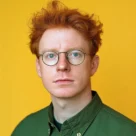In an era where medical innovation is constantly evolving, Faisal Zain has emerged as a prominent figure. With a background in chemical engineering and a passion for healthcare, his journey towards advancing medical technology has made a significant impact in the field of ophthalmology. Today, Faisal shares insights from his career and the groundbreaking work he’s involved with, offering a glimpse into the future of eye treatment and research.
Can you share more about the patient you mentioned who had lost vision in one eye and was also deaf?
I encountered a patient who had lost vision in one eye and was also deaf. Communicating with him required using basic hand signals to show him how I would shine a light in his eye and apply eye drops. His determination was remarkable; despite his conditions, he never missed an appointment and was fully committed to preserving the vision in his other eye. His resilience has deeply impacted my approach to medicine, reminding me of the importance of perseverance and innovative solutions in patient care.
What inspired you to pursue a career in medicine after completing your degree in chemical engineering?
My background in chemical engineering equipped me with robust problem-solving skills, which I realized could be applied effectively in medicine. The transition was fueled by a desire to address pressing medical issues and make a tangible impact on society. Adapting my engineering mindset to clinical problems has allowed me to innovate and improve patient outcomes. Challenges included mastering the vast array of medical knowledge and the nuances of patient care, but the process has been incredibly rewarding.
Can you explain the significance of your work in AI-driven myopia detection?
AI-driven myopia detection is significant because it enables us to predict which children are at high risk of developing severe myopia within five years. This technology is crucial for early intervention strategies, as myopia is expected to affect eight out of 10 Singaporeans by 2050. Effective early detection can help mitigate the risks and complications associated with myopia, ultimately preventing potential blindness and improving quality of life.
As SNEC’s Myopia Service clinical director, what are your main responsibilities?
My role involves overseeing our myopia service and implementing real-world solutions to manage the high prevalence of myopia in Singapore. This includes spearheading research initiatives, developing clinical guidelines, and educating the public about myopia. By addressing this public health challenge directly, my work contributes to reducing the long-term impact of myopia and improving patient care standards.
How do you balance your clinical practice with your role in medical innovation and research?
Balancing clinical practice with innovation and research requires dedication and time management. My motivation to continue innovating stems from the desire to enhance patient care and outcomes continually. Recent advancements I’m excited about include novel AI applications in early disease detection and therapeutic innovations in ophthalmology. Staying at the forefront of research helps integrate cutting-edge technologies into everyday clinical practice.
What was your experience like attending the MIT-Harvard Medical School Healthcare Innovation Bootcamp?
Attending the bootcamp was transformative. I pitched the idea of flavored soft foods for patients with difficulty swallowing, which was well-received. The bootcamp emphasized collaborative innovation and provided valuable insights into turning ideas into practical healthcare solutions. This experience has significantly influenced my approach to mentorship and medical innovation, highlighting the importance of interdisciplinary collaboration.
Can you elaborate on your role as a mentor in the Duke-NUS Health Innovator Programme (DHIP)?
As a mentor, my role involves guiding students through the process of identifying clinical gaps and developing solutions. Team ReVision, one of my mentee teams, developed a novel contact lens management system for children, earning the top prize in the annual innovation challenge. The structured program enables students to pursue their innovative ideas and develop practical solutions to real-world problems.
How has mentoring young clinicians and students influenced your own professional development?
Mentoring has been profoundly enriching. It brought back fond memories from my time as a student at Duke-NUS, where we had a supportive community and close-knit relationships with tutors. This interaction shapes future-ready clinicians adaptable to modern healthcare’s complexities, and it has reinforced my commitment to guiding the next generation of medical innovators.
What advice would you give to someone considering a career in medicine, particularly at Duke-NUS?
Medicine is a challenging yet rewarding field. Duke-NUS offers unique opportunities, with comprehensive training and a focus on innovation. Prospective students should leverage these opportunities and engage fully with the experiences provided. Maximizing their time at Duke-NUS will prepare them for diverse roles in healthcare, from skilled clinicians to dynamic innovators.









